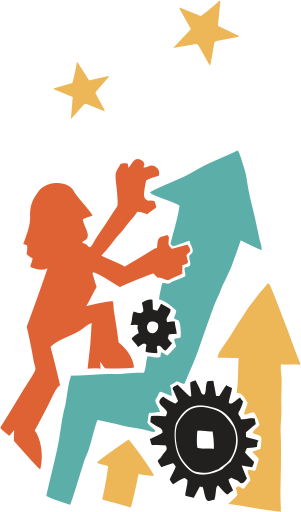Why the Best Performers Aren’t Always the Best Trainers

OK. How many of you are willing to admit that you’ve experienced this scenario: You needed someone to train a new hire, automatically chose the person who was the best performer in the job that needed to be trained—and then were disappointed with the results? Unfortunately, it’s likely that we’ve all done that at one time or another.
On the surface our actions seem logical. After all, we knew that Bob was the best cheese monger in the store, and we wanted the new person behind the cheese counter to benefit from Bob’s knowledge. However, not only were the results disappointing in terms of getting the new person up to speed, but often we ended up with a frustrated trainer and an unhappy trainee on our hands. In the worst case, the trainer declared the trainee “incompetent” and the trainee started looking for another job because the situation became so uncomfortable. Why did this happen and how can we avoid it in the future?
Lack of Training for Trainers
Of course there are lots of reasons why this could happen, but in our experience most of them stem from the fact that we often ask people to train and then give them no instruction on how to train effectively. Training is, in and of itself, a skill—one that can be taught, learned and improved with practice. However all too often the separate skill of being an effective trainer is ignored because we incorrectly believe that competence in the skill being trained (e.g., cheese mongering) is what really matters.
While there are lots of things that can help a trainer be more effective, understanding the Stages of Learning a Skill is something that we’ve found among the most useful. Explaining these stages is a key element of ZingTrain’s Train-the-Trainer class.
Stages of Learning a Skill
(suggested chart or illustration)
|
Stage 4: Unconscious/Competent |
|
Stage 3: Conscious/Competent |
|
Stage 2: Conscious/Incompetent |
|
Stage 1: Unconscious/Incompetent |
The Stages of Learning a Skill
To be good at something (whether selling cheese, running a retail store or being a parent), you need to a) understand what is expected/what needs to be done and b) be able to implement effectively. It helps to think in terms of knowing the skill both in your head (this is what needs to happen) and in your hands (you can do it).
Stage 1: Unconscious/Incompetent
When someone is completely new to a task, they don’t know what they don’t know. For example, a 15-year-old who is watching his parent drive the family car (and anticipating getting his learner’s permit in the next couple of months) often thinks, “that looks easy! I’ll be able to drive as soon as I get behind the wheel.” Of course, simply operating the vehicle (turn the key, release the parking brake, press the gas pedal) is just the tip of the driving iceberg. Obviously the 15-year-old does not have a clear grasp of all that is involved in driving safely (rules of the road, the unpredictability of other drivers, how weather affects driving conditions, etc.) In training jargon, we say that 15-year-old is “unconscious” and “incompetent.”
 Incompetent in this context doesn’t mean “stupid;” it simply means “not competent.” Every new hire that you have starts in this stage. Even someone with prior retail experience has to learn the processes and procedures that are unique to your environment. What cheeses do you carry? Is there a minimum size piece that you’ll cut to order? What is the procedure for taking orders over the phone? How do you handle a customer complaint? When your new cheese department employee starts, he doesn’t know any of these things, but he’s typically excited about the new job and confident that he’ll learn quickly.
Incompetent in this context doesn’t mean “stupid;” it simply means “not competent.” Every new hire that you have starts in this stage. Even someone with prior retail experience has to learn the processes and procedures that are unique to your environment. What cheeses do you carry? Is there a minimum size piece that you’ll cut to order? What is the procedure for taking orders over the phone? How do you handle a customer complaint? When your new cheese department employee starts, he doesn’t know any of these things, but he’s typically excited about the new job and confident that he’ll learn quickly.
Stage 2: Conscious/Incompetent
As your new hires begin to understand the processes, procedures and expectations of your store, they move into Stage 2. It is not unusual for someone’s morale to go down during this stage, because they are starting to recognize how much they don’t know, and they have a better idea about the amount of learning ahead of them. Being conscious of what is expected is a good start but it does not mean being able to meet those expectations. If you don’t know what it’s supposed to look like when you split a big wheel of cheese well, there’s little chance that you’ll do it correctly. On the other hand, knowing how it’s supposed to look doesn’t mean you can make it happen.
Stage 3: Conscious/Competent
The way to move from Stage 2 to Stage 3 is practice. Lots and lots of practice, under the watchful eye of someone giving positive reinforcement of what’s going well and constructive criticism of what needs to be improved. Without useful feedback, the trainee can feel abandoned during this stage. And beware! Practice is only really effective after the trainee has reached Stage 2. If the trainee is still in Stage 1, they aren’t clear on what is expected so will practice doing things the wrong way. With practice and helpful feedback, the trainee reaches Stage 3, and we consider them “trained,” i.e., they understand what is expected and consistently do the job correctly.
Stage 4: Unconscious/Competent
So what happens when you know how to do a job, and you’ve done it many, many times? You become unconsciously competent. You’re doing the task correctly, but you no longer have to think about exactly how. When we become very skilled at something, we no longer are aware of all the little pieces of the job that make the final result turn out right.
So here is the paradox: although people in Stage 4 are the best at performing a skill or doing a task, they are not very good at teaching others to do that same skill or task. Why? Because they have forgotten what it is like to do that job for the first time. All the details have become “second nature” and seem so “obvious” that it doesn’t occur to the Stage 4 trainer that the Stage 1 trainee must hear about those details in order to learn what to do.
Becoming a Consciously Competent Trainer
When we choose our best performer to be the trainer, we are choosing someone who is, almost certainly, in Stage 4. Which is not bad. It just means that to be a more effective trainer, they need to get themselves back to Stage 3—so that they are more conscious of what exactly they are doing and can share that with the trainee. In a Zen context, they want to get back to “beginner’s mind.”
How to do that? Here are a few suggestions:
-
Write down all the steps to the task (and ask a Stage 3 or another Stage 4 person to edit your outline).
-
Force yourself to do the task a little bit differently and explain out loud what you’re doing differently and why.
-
Watch a Stage 3 person perform the task and take notes.
-
Make sure to share what you’re thinking, not just what you’re doing. For example, “See how that customer is wandering back and forth? That makes me think she’s looking for something specific. I’m going to go ask how I can help her.” Or “OK, I hear the phone ringing a lot. That makes me think that we’re about to get hit with a ton of lunch orders. I’m going to call for a second sandwich maker now, before we get buried.”
Recognizing training as a skill—separate from the content of the training—and providing training to our trainers so that they can more effectively transfer their knowledge to their trainees, is great way to improve the bottom-line results from your training investments.
*This piece was originally published in Gourmet Retailer.
 Back to Library
Back to Library





